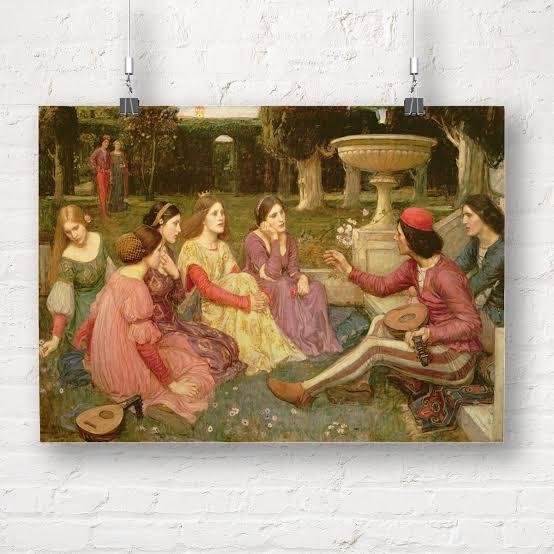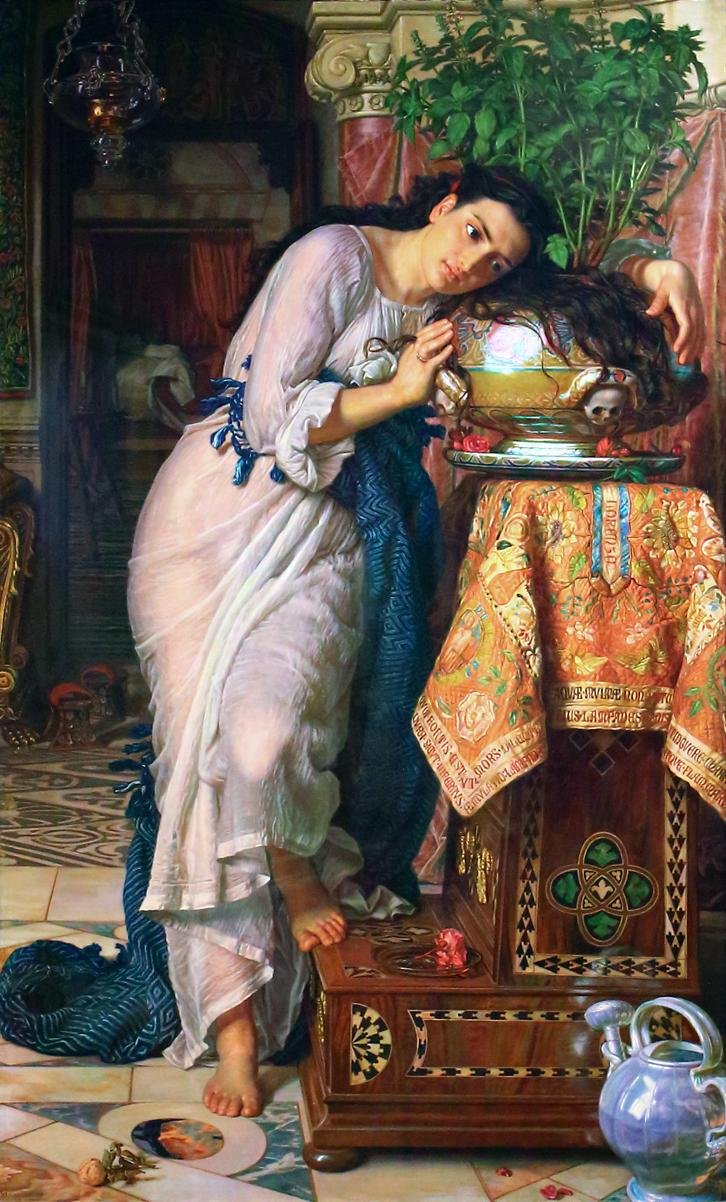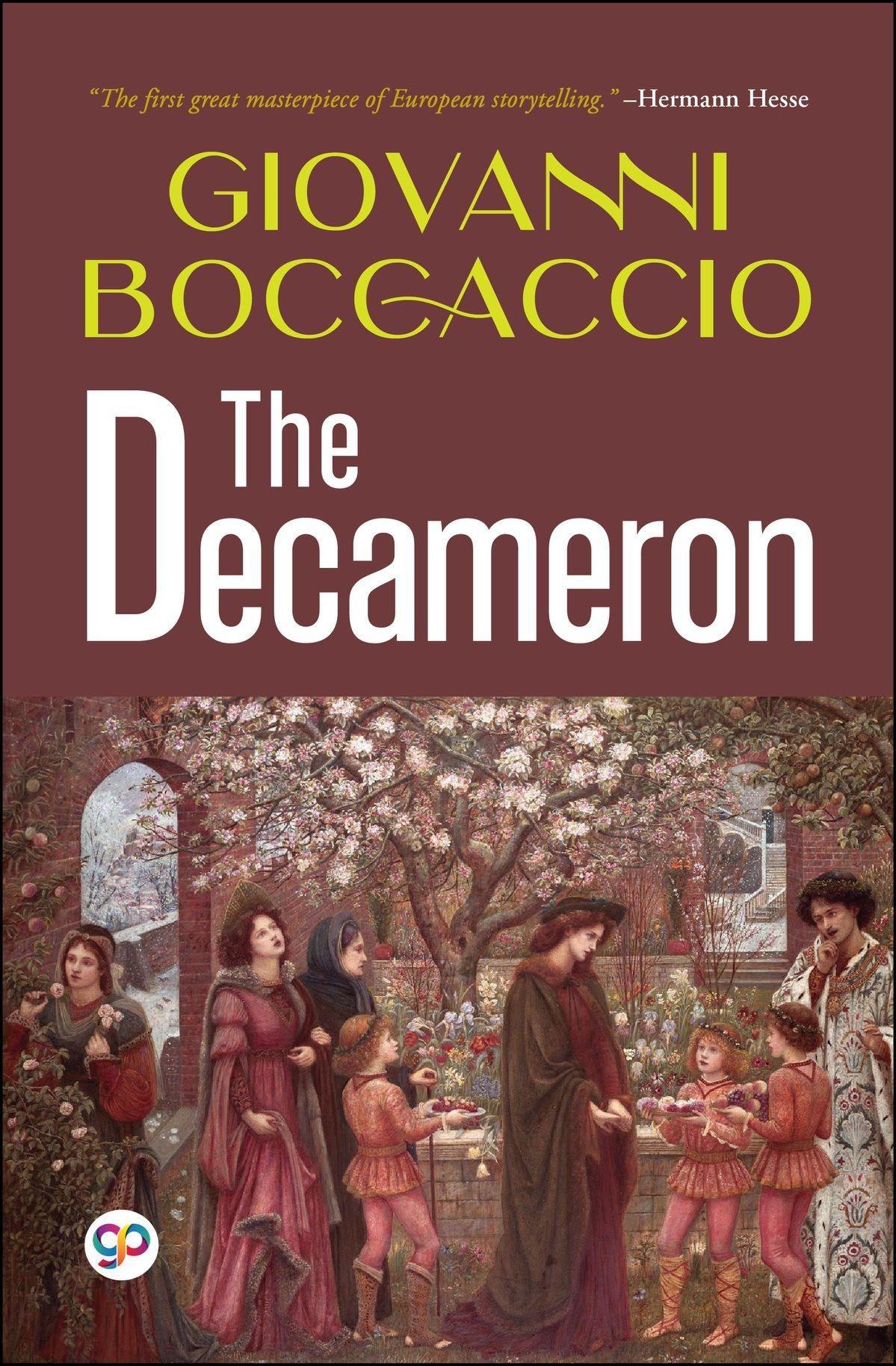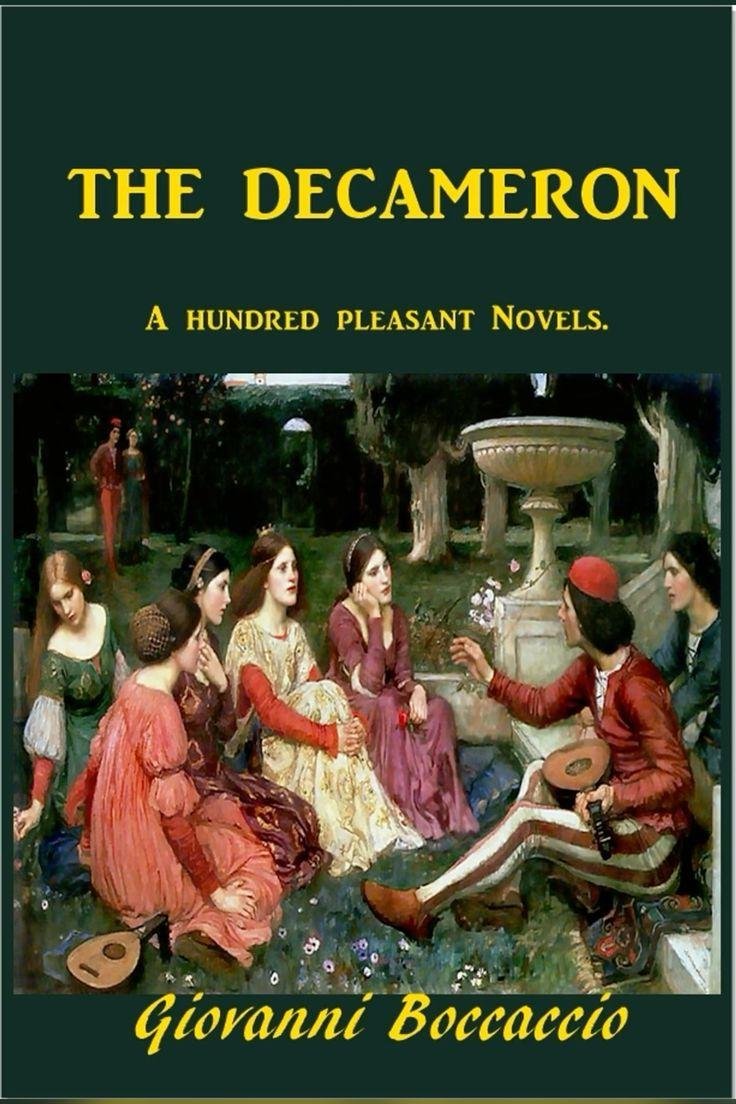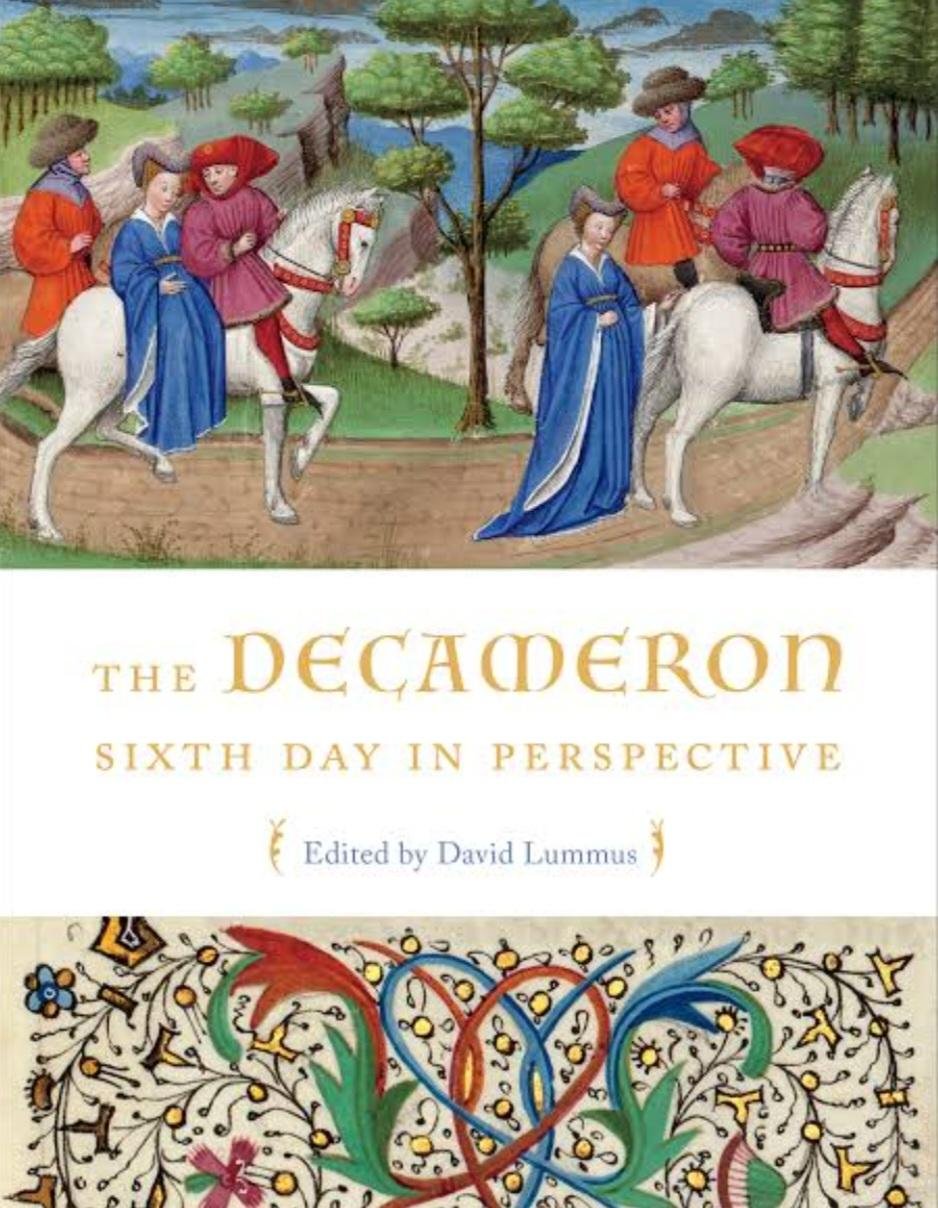Title: Love, Loss, and a Father’s Fury: The Tragedy of Tancredi and Ghismunda
Introduction:
Giovanni Boccaccio’s The Decameron opens a window into medieval values, relationships, and human folly. In the tragic tale of Tancredi and Ghismunda (Day 4, Tale 1), Boccaccio presents a powerful story of love stifled by authority and honor. This tale explores the devastating consequences of controlling love and highlights the conflict between individual desire and patriarchal rule. Through vivid storytelling and emotional depth, the tale still resonates in modern conversations about personal freedom and family expectations.
Summary:
Tancredi, Prince of Salerno, is overly protective of his daughter, Ghismunda, and delays arranging a second marriage for her after her husband dies. In secret, she falls in love with Guiscardo, a man of lower status. When Tancredi discovers their affair, he has Guiscardo killed and sends his heart to Ghismunda in a golden cup. Devastated, she poisons herself after drinking from the cup, dying beside the heart of her beloved.
Analysis:
This tale is rich in emotional tension and moral ambiguity. At its heart is the theme of love versus authority. Tancredi’s love for his daughter morphs into control, while Ghismunda’s love for Guiscardo is passionate, brave, and ultimately self-destructive. The conflict between personal desire and social expectation—especially a woman’s right to choose her partner—drives the tragedy.
Symbolism is central to the tale. The golden cup containing Guiscardo’s heart is a haunting image of love tainted by violence. It also reflects medieval values where honor and appearances outweighed genuine human connection. Boccaccio uses irony—especially dramatic irony—in revealing Tancredi’s well-intentioned but fatal decisions. His attempts to “protect” Ghismunda lead to her demise.
The story critiques patriarchy and the illusion of moral superiority. Ghismunda’s eloquent defense of her love to her father is one of the most powerful monologues in The Decameron, challenging the double standard that allowed men sexual freedom while condemning women for the same.
Personal Response:
This tale struck me with its emotional intensity and timeless relevance. Ghismunda’s courage and sorrow were deeply moving. Her voice feels modern in its demand for autonomy, even though the story is centuries old. While Tancredi sees himself as a righteous father, his actions reveal how love can become oppressive when mixed with control.
Conclusion:
The tragedy of Tancredi and Ghismunda reminds us that love cannot thrive under tyranny and that emotional repression often leads to destruction. Boccaccio’s tale offers a timeless meditation on power, agency, and the cost of pride. In an age where we still debate personal freedom and societal roles, this story remains hauntingly relevant.
#The_Decameron
#Literary Analysis
#Analysis
#Literature
#Blog
#College Assignment
#StoryTelling
#Blog Essay
Introduction:
Giovanni Boccaccio’s The Decameron opens a window into medieval values, relationships, and human folly. In the tragic tale of Tancredi and Ghismunda (Day 4, Tale 1), Boccaccio presents a powerful story of love stifled by authority and honor. This tale explores the devastating consequences of controlling love and highlights the conflict between individual desire and patriarchal rule. Through vivid storytelling and emotional depth, the tale still resonates in modern conversations about personal freedom and family expectations.
Summary:
Tancredi, Prince of Salerno, is overly protective of his daughter, Ghismunda, and delays arranging a second marriage for her after her husband dies. In secret, she falls in love with Guiscardo, a man of lower status. When Tancredi discovers their affair, he has Guiscardo killed and sends his heart to Ghismunda in a golden cup. Devastated, she poisons herself after drinking from the cup, dying beside the heart of her beloved.
Analysis:
This tale is rich in emotional tension and moral ambiguity. At its heart is the theme of love versus authority. Tancredi’s love for his daughter morphs into control, while Ghismunda’s love for Guiscardo is passionate, brave, and ultimately self-destructive. The conflict between personal desire and social expectation—especially a woman’s right to choose her partner—drives the tragedy.
Symbolism is central to the tale. The golden cup containing Guiscardo’s heart is a haunting image of love tainted by violence. It also reflects medieval values where honor and appearances outweighed genuine human connection. Boccaccio uses irony—especially dramatic irony—in revealing Tancredi’s well-intentioned but fatal decisions. His attempts to “protect” Ghismunda lead to her demise.
The story critiques patriarchy and the illusion of moral superiority. Ghismunda’s eloquent defense of her love to her father is one of the most powerful monologues in The Decameron, challenging the double standard that allowed men sexual freedom while condemning women for the same.
Personal Response:
This tale struck me with its emotional intensity and timeless relevance. Ghismunda’s courage and sorrow were deeply moving. Her voice feels modern in its demand for autonomy, even though the story is centuries old. While Tancredi sees himself as a righteous father, his actions reveal how love can become oppressive when mixed with control.
Conclusion:
The tragedy of Tancredi and Ghismunda reminds us that love cannot thrive under tyranny and that emotional repression often leads to destruction. Boccaccio’s tale offers a timeless meditation on power, agency, and the cost of pride. In an age where we still debate personal freedom and societal roles, this story remains hauntingly relevant.
#The_Decameron
#Literary Analysis
#Analysis
#Literature
#Blog
#College Assignment
#StoryTelling
#Blog Essay
Title: Love, Loss, and a Father’s Fury: The Tragedy of Tancredi and Ghismunda
Introduction:
Giovanni Boccaccio’s The Decameron opens a window into medieval values, relationships, and human folly. In the tragic tale of Tancredi and Ghismunda (Day 4, Tale 1), Boccaccio presents a powerful story of love stifled by authority and honor. This tale explores the devastating consequences of controlling love and highlights the conflict between individual desire and patriarchal rule. Through vivid storytelling and emotional depth, the tale still resonates in modern conversations about personal freedom and family expectations.
Summary:
Tancredi, Prince of Salerno, is overly protective of his daughter, Ghismunda, and delays arranging a second marriage for her after her husband dies. In secret, she falls in love with Guiscardo, a man of lower status. When Tancredi discovers their affair, he has Guiscardo killed and sends his heart to Ghismunda in a golden cup. Devastated, she poisons herself after drinking from the cup, dying beside the heart of her beloved.
Analysis:
This tale is rich in emotional tension and moral ambiguity. At its heart is the theme of love versus authority. Tancredi’s love for his daughter morphs into control, while Ghismunda’s love for Guiscardo is passionate, brave, and ultimately self-destructive. The conflict between personal desire and social expectation—especially a woman’s right to choose her partner—drives the tragedy.
Symbolism is central to the tale. The golden cup containing Guiscardo’s heart is a haunting image of love tainted by violence. It also reflects medieval values where honor and appearances outweighed genuine human connection. Boccaccio uses irony—especially dramatic irony—in revealing Tancredi’s well-intentioned but fatal decisions. His attempts to “protect” Ghismunda lead to her demise.
The story critiques patriarchy and the illusion of moral superiority. Ghismunda’s eloquent defense of her love to her father is one of the most powerful monologues in The Decameron, challenging the double standard that allowed men sexual freedom while condemning women for the same.
Personal Response:
This tale struck me with its emotional intensity and timeless relevance. Ghismunda’s courage and sorrow were deeply moving. Her voice feels modern in its demand for autonomy, even though the story is centuries old. While Tancredi sees himself as a righteous father, his actions reveal how love can become oppressive when mixed with control.
Conclusion:
The tragedy of Tancredi and Ghismunda reminds us that love cannot thrive under tyranny and that emotional repression often leads to destruction. Boccaccio’s tale offers a timeless meditation on power, agency, and the cost of pride. In an age where we still debate personal freedom and societal roles, this story remains hauntingly relevant.
#The_Decameron
#Literary Analysis
#Analysis
#Literature
#Blog
#College Assignment
#StoryTelling
#Blog Essay
0 Comments
·0 Shares
·1K Views
·0 Reviews






